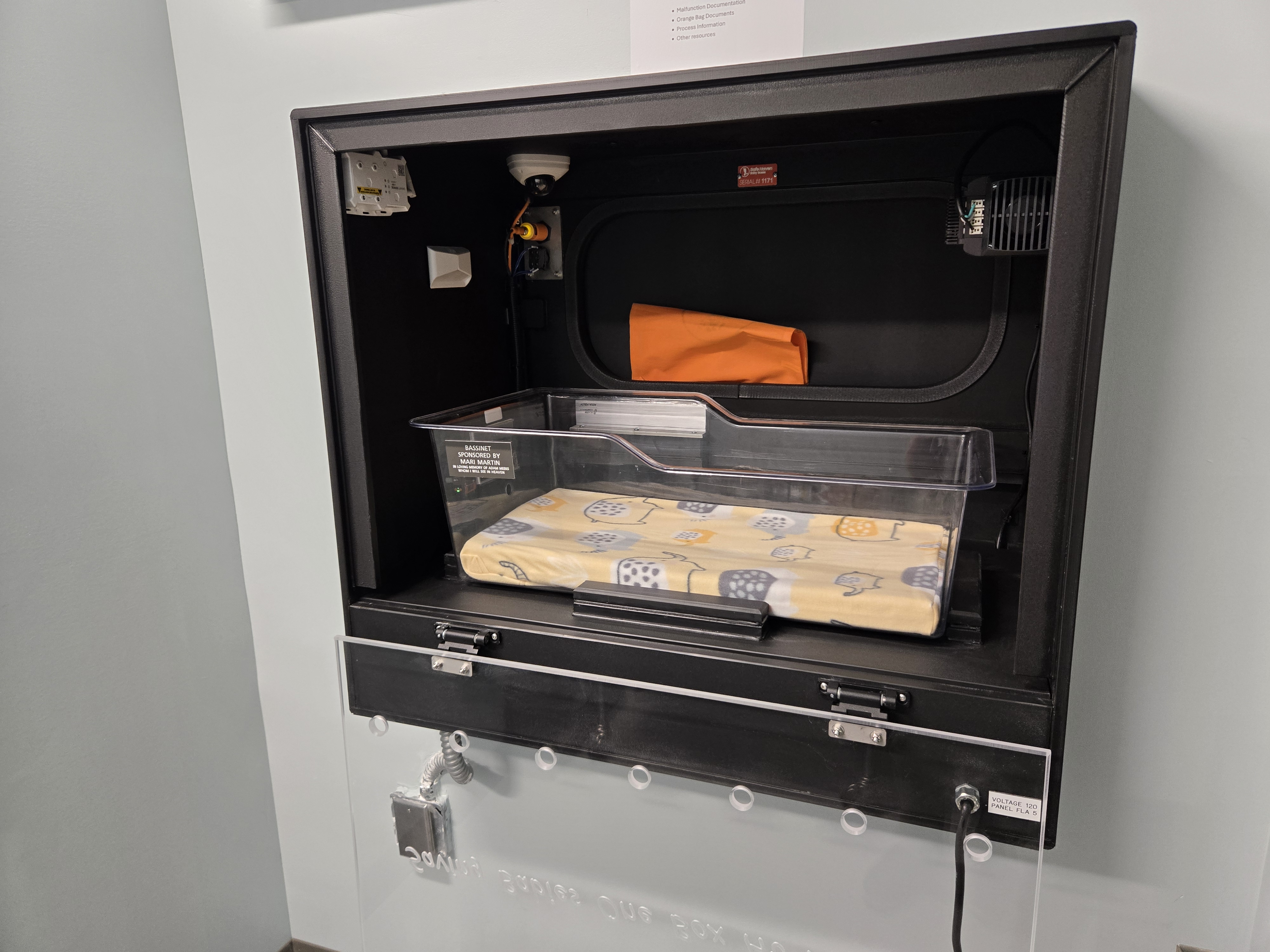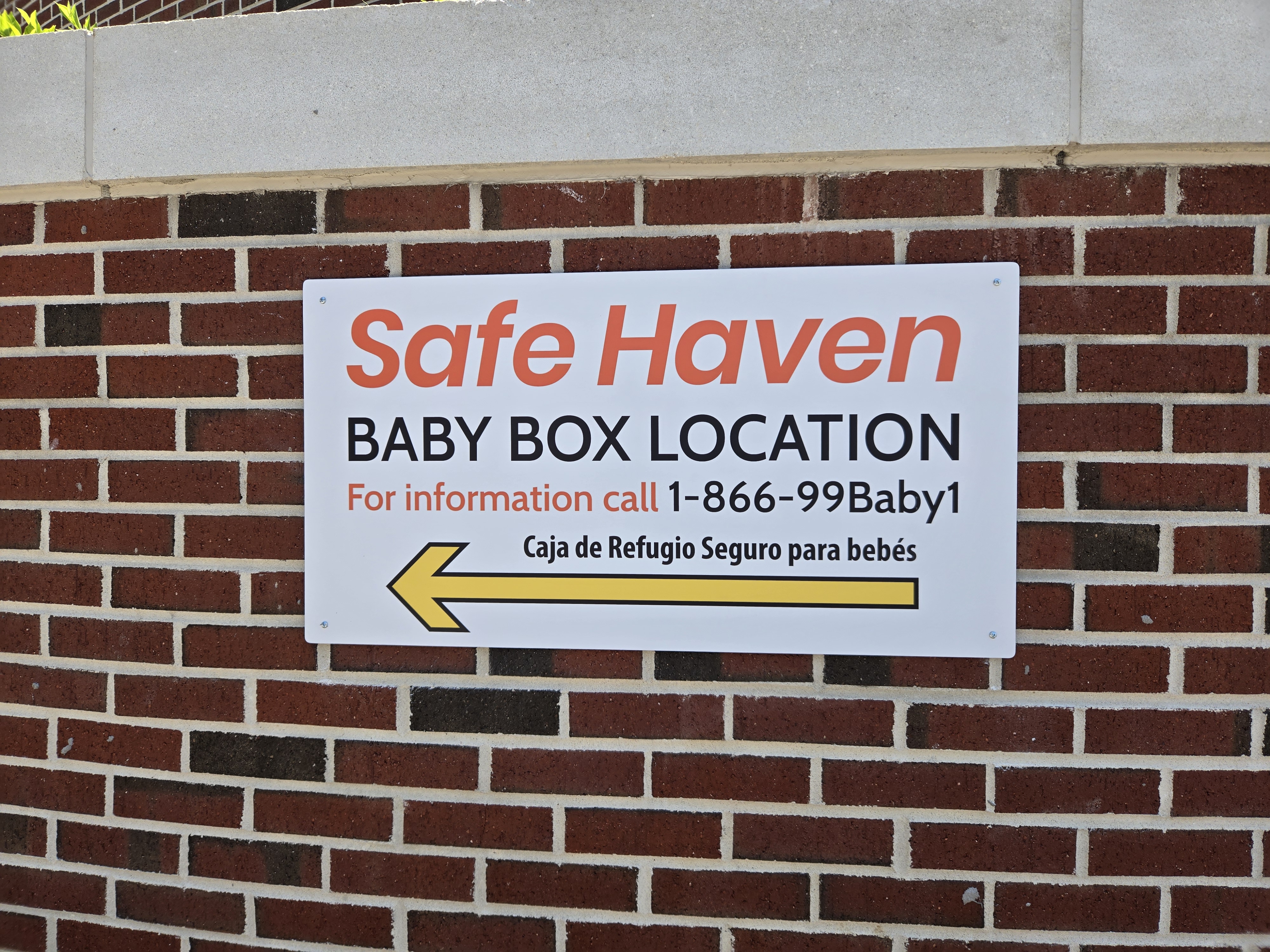Visitors driving through the parking garage beneath Carilion Roanoke Memorial Hospital’s new emergency department will now notice an unusual door, raised from floor level and reminiscent of a mailbox, but larger. It’s built to hold a baby.
This is Virginia’s first baby box, a device that allows a parent to legally and anonymously surrender an infant in a secure, monitored environment. Installed on an exterior wall inside the hospital’s parking garage, the box opens to reveal a small compartment with a medical bassinet. Once the baby is placed inside the temperature-controlled ventilated space and the door is closed, it locks automatically. A silent alarm immediately alerts medical staff inside, who retrieve and care for the child within minutes.
It’s difficult to quantify the demand for baby boxes like this one, according to Mariah Betz, assistant project coordinator with Safe Haven Baby Boxes, the nonprofit organization that partnered with Carilion to bring this service to the hospital.
When Virginia passed a law in 2022 allowing the use of baby boxes, the idea caught the attention of a nurse at Carilion, and she began advocating for a local installation.

These baby boxes are meant to prevent unsafe infant abandonment and are legal in certain states, including Virginia, under so-called safe haven laws. These laws allow parents to relinquish a newborn, up to 30 days old, without fear of prosecution, as long as there isn’t evidence of child abuse.
Virginia’s safe haven laws also allow parents to legally surrender an infant at designated locations such as hospitals, police stations and fire departments. These sites serve as alternatives for people who are unable to care for a newborn, without facing legal consequences.
When Virginia legalized the use of baby boxes, it joined a growing number of states responding to rare cases of infant abandonment. Interest in safe haven laws and surrender options has grown in recent years, particularly after the U.S. Supreme Court overturned Roe v. Wade in 2022, eliminating the federal right to abortion. The decision sparked renewed attention to what options exist for people who carry pregnancies to term but feel unable to parent.
As of January 2025, at least 20 states have approved the use of baby boxes, according to Safe Haven. Since 2016, the organization has helped install more than 300 baby boxes nationwide. To date, about 60 infants have been surrendered through these boxes, according to the nonprofit.
Babies surrendered under Virginia’s safe haven law are relinquished to the Department of Social Services to begin the process of terminating parental rights and placing the child with an adoptive family.

There are endless situations that could drive a parent to leave a child in one of these secure locations, but one of the key elements of the drop-off model is that no one knows the exact circumstances, Betz said.
“It’s completely anonymous, completely judgment-free,” she said.
Dr. Drew Herman, Carilion’s new chair of pediatrics, has spent his career working in neonatal intensive care units. He’s seen firsthand how overwhelming it can be for some parents — especially those facing poverty, substance use disorder or disabilities — to care for a newborn, let alone a medically fragile one.
Sometimes, parents in this position leave their newborn in the hospital, he said.
“We didn’t have the ability to have closure or to know what the right thing was to do for that child,” Herman said. In those cases, a Safe Haven Baby Box could have been incredibly helpful, he added.
In addition to providing baby boxes, Safe Haven Baby Boxes operates a 24/7 crisis hotline at 866-992-2291, offering support, counseling and guidance to individuals who are considering surrendering a child or have already done so.



